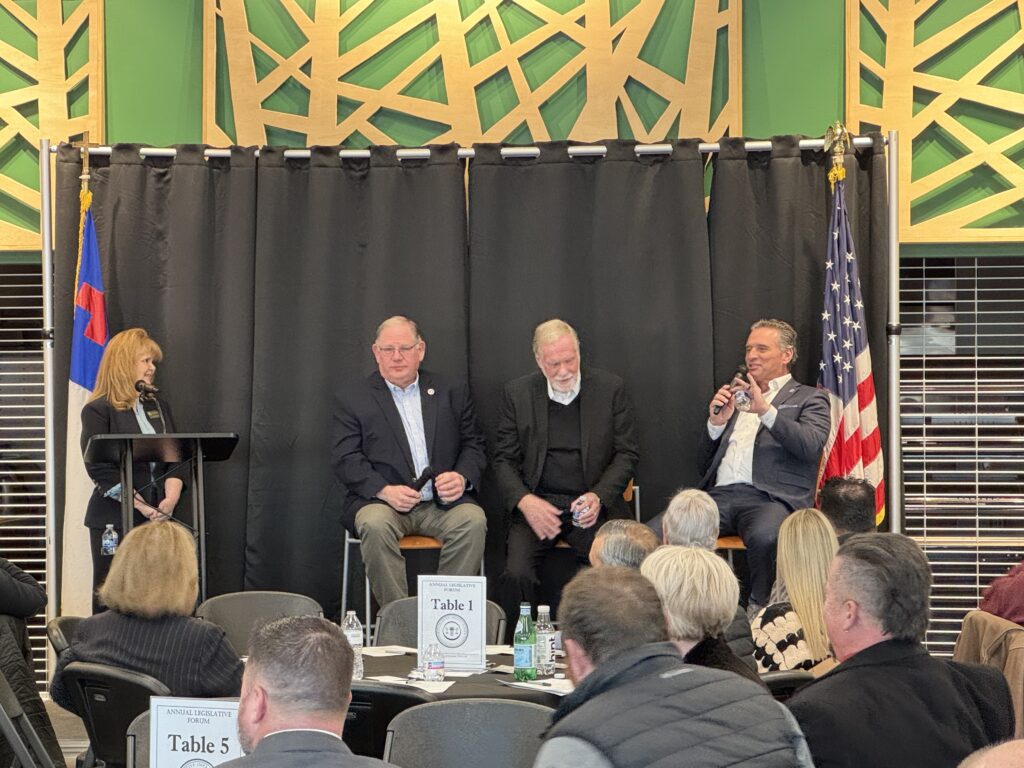Superintendent rallies parents, lawmakers to pass school choice in Kansas
A Christian school superintendent is rallying parents and lawmakers to expand school choice in Kansas.
Dr. Kimberlee Gill, superintendent of Maranatha Christian Academy in Shawnee, Kansas, held…

A Christian school superintendent is rallying parents and lawmakers to expand school choice in Kansas.
Dr. Kimberlee Gill, superintendent of Maranatha Christian Academy in Shawnee, Kansas, held the first of what she hopes will be multiple listening sessions across the state with lawmakers Wednesday.
Gill, who helped pass Missouri’s school choice program when she worked in that state, called the more than 100 people in attendance “evidence we’re ready for change in Kansas.”
“My research tells you that school choice passes and expands when administrators and parents get involved,” she said. “We are the banner that flies the flag high. The legislators are the warriors fighting for us. They cannot fight alone.”

About 15 state lawmakers and one state board of education member attended the forum, which included comments and a Q&A from House Speaker Dan Hawkins and Senate President Ty Masterson.
Both lead Republican supermajorities in the Legislature but must overcome likely vetoes by Democrat Gov. Laura Kelley of any school choice expansion bills. Kansas’ current program helps about 1,300 low-income students statewide but is nowhere near the universal school choice available in states such as Iowa and Arkansas.
“In the next few years, more than half of the country’s going to have pretty expansive universal school choice for parents for education, and we’re falling behind,” Masterson said.
He and Hawkins discussed barriers to passing school choice, agreeing with Gill about the need for parents to get involved.
“You guys are the best lobbyists for your own kids, for your own choices,” Masterson told the crowd. “When a mom or dad shows up, they are way more important than a lobbyist.”
Hurting rural schools?
Hawkins explained that unfounded fears from rural lawmakers about public schools closing in their districts, as well as suburbanites who are content with their current choices, hinder school choice expansion.
He said school choice doesn’t cause rural schools to close and public schools shouldn’t fear healthy competition from school choice.
“My question is, ‘What are you scared of?’ Why are you worried about this? Has there ever been a state where school choice went in and put the public school out of business?’ No,” Hawkins said. “Matter of fact, they still thrive. It’s just giving those parents that choice of how they want their kids educated, which is I think one of the most important things we can do.”
Masterson framed the issue as parental choice, something wealthy families already enjoy.
“Rich people have choices. They can go to any school they want. We’re really talking about an opportunity to give moderate- to low-income people that choice. They’re the ones who are trapped.”
Parents submitted questions including how to keep schools private and religious if they accept government funding.
Gill explained that the Supreme Court has ruled that money designated by a parent to a school from an education savings account, a type of school choice present in Missouri and other states, isn’t government money. “We will never take money directly from the government,” she said.
The lawmakers also dispelled a myth that supporting school choice means opposing public schools and especially their teachers.
“There’s this thought out there that Republicans hate public school teachers,” Hawkins said. “It’s not the teachers we have a problem with. We have more of a problem with KASB (Kansas Association of School Boards) and the administration than we do with the teachers.”
They detailed multiple funding increases the Legislature has approved for public schools but raised concerns about stagnant student scores.
“We’re up $3 billion annually on K-12 education and our outcomes are not any better,” Masterson said. “Money is not the answer. It can be helpful at times but it’s certainly not the overall answer.”



